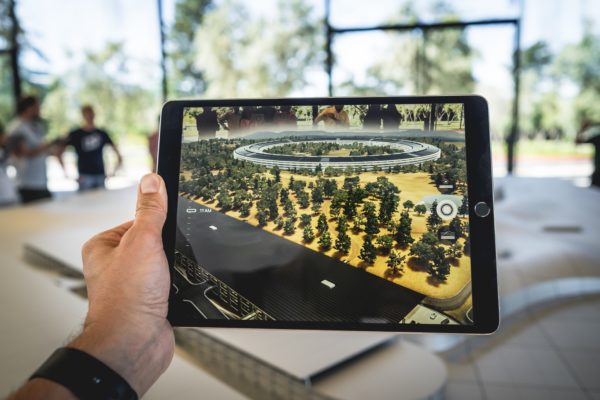Dr Jordan Beth Vincent, Research Fellow at Deakin Motion.Lab, is helping to redefine creative arts with cutting-edge technology, world-leading research and a fabulous team. So what is life really like in this mind-blowing field?
Describe your research in three sentences or less.
I lead the Deakin Motion.Lab, where our work examines the intersection of art, movement and technology. We are developing virtual production methods for film and television, integrating data-driven movement for animation (through our work with motion capture) and investigating human-computer interaction from a creative arts perspective.
Now describe it in three words.
Movement, data, screens.
What absolutely makes your day as a researcher?
I love industry-facing research work, and the best days are the ones where we can find a great, research-driven solution to solve a real world problem. I love working collaboratively across disciplines, teams and with industry where creativity can be core to the conversation.
What does a bad day look like?
Like life for every researcher, things can go up and down. Sometimes you get the funding – grants, projects, etc – sometimes you aren’t so lucky. But even on the worst day, I’m lucky to have such fantastic colleagues to work with and that always makes things better.
How far could you take your research if you weren’t constrained by fiscal or human resources?
We’d be pioneering new methods, tools and workflows to make feature films, or developing huge-scale public installations if there were no constraints. However, the industries we work with have their own fiscal or human resource restraints, and we are able to find creative solutions because of them.
What exotic locations has your research taken you to?
We spend most of our time in our lab in Burwood. However, we’ve got projects in development with partners in Singapore, London, Vietnam, India and Denmark at the moment so maybe we’ll be heading to some of those places one day!
Who do you look to for inspiration in your field? Why?
I’m extremely inspired by female entrepreneurs – both within academia and outside of academia. We work a lot with film and television producers, and their skills to solve complex problems, think outside the box, and produce amazing products never fail to amaze me. A great producer functions in these incredibly complex systems, and I find that there’s a lot about the way the good ones work that can be applied to our research work in the lab.
What is the most unexpected skill you’ve discovered you need in this job?
I’m a non-technical researcher leading a lab that specialises in technical and data-driven research. The research has to be excellent from both the academic perspective and in terms of the industry outcome, so the process of creating that work is interdisciplinary and collaborative. Finding ways to build genuine trust and good relationships with industry partners is crucial, and those are skills that I rely on every single day.
What’s the strangest thing anyone has asked you about your work?
We get some pretty unusual requests and projects – it’s the nature of working in the creative arts! In the past few weeks, I was involved in discussions about the amount of goo a CG monster needs on his skin, how to track and visualise the breathing patterns of musicians, replicating the view of a future city from the perspective of a cyclist in VR and how to simulate a non-gravity environment for motion capture artists. Every day is a new adventure.
What does your family think you do?
My family understands what it means to be an academic, and also what it means to go to work on a film set. What they may not understand is that we do both at the Deakin Motion.Lab!
What do you think will have happened in your field in 10 years’ time that would surprise the rest of us?
Fields that draw on emerging technology are moving incredibly rapidly. I’d like to see full integration of mixed reality on film sets, and the production times for high-end content go down to nearly nothing. We are seeing movement in that direction already. However, ten years is a really long time in this field, so who knows?
Learn more about Motion.Lab.
‘Minibeast Heroes’ – towering achievement for Deakin Motion.Lab



